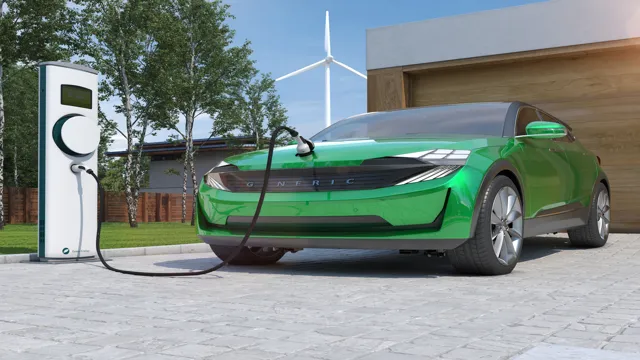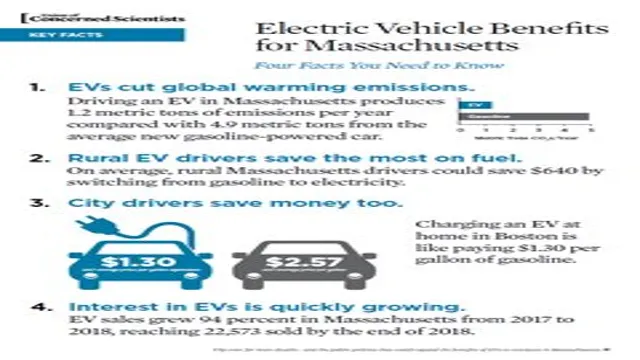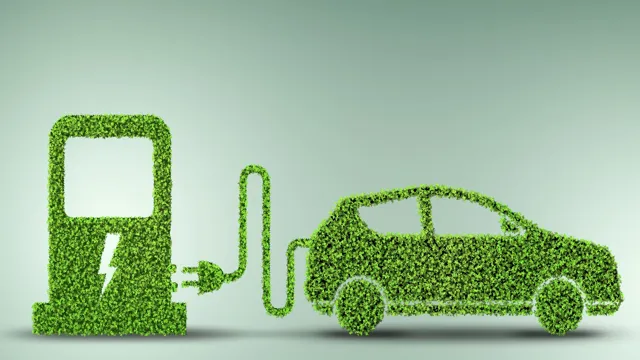Unplugging the Truth: The Real Story Behind Electric Cars and the Environment
Electric cars have become increasingly popular in recent years, with more individuals choosing to make the switch from traditional gas-powered vehicles. However, while electric cars are often praised for their efficiency and cost-effectiveness, many individuals are left wondering if they truly benefit the environment. After all, the production and disposal of electric car batteries can have their own environmental impacts.
So, do electric cars really benefit the environment? In this blog, we’ll dive into the facts and explore the potential benefits and drawbacks of electric cars from an environmental perspective.
Electric Cars vs Gasoline Cars
While it seems obvious that electric cars would be better for the environment than gasoline cars, the answer isn’t always so cut-and-dry. Yes, electric cars produce zero emissions while driving, but the production and disposal of the cars can still have environmental impacts. The batteries in electric cars require rare earth metals, which can be environmentally destructive to mine.
However, these materials can be recycled and reused. Additionally, the electricity used to charge electric cars can come from fossil fuel-based power plants, which would still be contributing to greenhouse gas emissions. However, as more and more renewable energy sources are being utilized, the electricity used to power electric cars is becoming cleaner.
Overall, electric cars have the potential to greatly benefit the environment, but their impact depends on the source of the electricity used and the sustainability of their production and disposal.
Comparison of Emissions and Pollution
When it comes to emissions and pollution, electric cars have a clear advantage over gasoline cars. While gasoline cars emit harmful pollutants such as carbon monoxide, nitrogen oxides, and particulate matter, electric cars produce zero emissions. This means that electric cars are not only better for the environment but they also promote cleaner air in cities.
Additionally, electric cars have lower lifetime emissions due to the fact that they do not rely on fossil fuels. Gasoline cars have to extract and refine oil, transport it and then the car itself is responsible for burning fuel which emits harmful gases into the air. On the other hand, electric cars rely on charging with renewable energy from renewable power plants, an option that gasoline cars cannot choose.
Overall, electric cars provide a more sustainable and eco-friendly transportation option that helps combat climate change.

Resource Usage and Production Processes
When it comes to comparing electric cars and gasoline cars, one of the most significant differences is in their resource usage and production processes. Electric cars are considered more environmentally friendly as they do not emit harmful pollutants and run on renewable energy sources such as electricity from solar or wind power. On the other hand, gasoline cars rely on gasoline, a non-renewable resource that contributes to air and water pollution.
Additionally, the production process of gasoline cars requires the extraction of fossil fuels, which can be damaging to the environment and emit large amounts of greenhouse gases. In contrast, electric cars require the production of batteries, which has its environmental impact, but research is underway to improve their manufacturing process to become more sustainable and efficient. Thus, choosing an electric car over a gasoline car not only benefits the environment but also contributes to reducing reliance on non-renewable resources.
Overall Impact on the Environment
Electric cars have become increasingly popular in recent years as a more environmentally friendly alternative to traditional gas-powered vehicles. While they do produce zero emissions on the road, the overall impact on the environment depends on many factors, including how the electricity is generated to charge the cars. If the electricity comes from coal-fired power plants, then the environmental benefits are diminished.
However, electric cars can still have a positive impact on the environment if they are charged with renewable energy sources like solar or wind power. Additionally, electric cars produce less greenhouse gas emissions over their lifetime compared to gas-powered cars, including in the manufacturing process, which can be a significant contributor to environmental damage. Overall, electric cars have the potential to greatly benefit the environment, but it is important to consider the sources of energy used to charge them.
Positive Environmental Effects of Electric Cars
Electric cars are a significant step towards reducing air pollution and improving the quality of the environment. They produce fewer emissions than traditional fossil fuel vehicles and can significantly lower GHG emissions that contribute to climate change. Furthermore, electric cars do not emit harmful pollutants such as nitrogen oxides, carbon monoxide, and particulate matter associated with fuel-burning engines.
Studies indicate that if electric cars widely replace gasoline cars, there would be a significant decline in emissions globally. Additionally, besides producing fewer carbon emissions, electric vehicles also require fewer resources such as water and oil compared to traditional cars, reducing their impact on the environment. Electric cars are therefore an excellent choice for individuals who want to enjoy the benefits of personal vehicles while keeping a minimal ecological footprint on the environment.
With the adoption of renewable energy, electric vehicles can be the perfect alternative to conventional automobiles, equipping us for a sustainable future.
Negative Environmental Effects of Electric Cars
While electric cars are often touted as a cleaner and more environmentally friendly alternative to traditional gas-powered vehicles, they still have negative effects on the environment. One area of concern is the production of electric car batteries, which requires the mining of metals such as cobalt and lithium. Mining can lead to deforestation, habitat destruction, and soil erosion.
Additionally, the production of these metals and the batteries themselves can emit greenhouse gases. Another issue is the sourcing of electricity to charge electric cars. If that electricity is from coal-fired power plants, the carbon emissions will cancel out the benefits of using an electric car.
This is why it’s important to consider the source of the electricity and to use renewable energy sources, such as wind or solar power, to power electric cars. It’s also important to properly dispose of electric car batteries, as they can release toxic chemicals into the soil and water if not recycled correctly. Overall, electric cars still have some negative environmental impact, but by using clean energy sources and properly disposing of batteries, we can start to mitigate these effects.
Net Benefit of Electric Cars for the Environment
Electric cars have the potential to provide significant benefits to the environment. Compared to traditional vehicles with internal combustion engines, electric cars have lower emissions of greenhouse gases and air pollutants, which can help mitigate the negative impacts of transportation on air quality and climate change. Additionally, the production and distribution of electricity used to power electric cars can be made cleaner over time through the increased use of renewable energy sources such as wind and solar power.
However, it is important to note that the overall impact of electric cars on the environment depends on various factors, including the source of electricity, the type of vehicle, and the production and disposal of batteries. Therefore, while electric cars have the potential to be a net positive for the environment, more research and improvements in technology and infrastructure are needed to ensure that they provide the greatest benefits possible.
Future of Electric Cars and the Environment
When we talk about electric cars, the question that often arises is, do they really benefit the environment? The answer is a resounding yes, they do! Electric cars have the potential to completely revolutionize the transportation industry, and the benefits for the environment are just one of the many advantages. Electric cars produce zero emissions, which means they don’t release harmful pollutants into the air. This is a huge benefit when you consider that cars are responsible for a significant portion of air pollution.
This reduction in pollution can help reduce environmental damage, improve public health, and even slow climate change. Additionally, as renewable energy sources such as wind and solar become more widely available, the electricity used to power electric cars will become even cleaner. While there are challenges to overcome, including developing more efficient battery technology and expanding the charging infrastructure, the future of electric cars is bright and promising.
Potential to Reduce Carbon Footprint and Combat Climate Change
Electric cars have the potential to significantly reduce our carbon footprint and combat climate change. As we move towards a greener and more sustainable future, electric cars are becoming an increasingly popular alternative to traditional gasoline-powered vehicles. Not only are they more environmentally friendly, but they are also more efficient and cost-effective in the long run.
Electric cars use rechargeable batteries instead of gasoline, which means they emit zero tailpipe emissions and do not contribute to air pollution. Additionally, the increase in renewable energy sources such as wind and solar power means that we can further reduce our carbon footprint by charging these cars with clean energy. While the shift to electric cars is still in its early stages, there is no doubt that they will play a significant role in our efforts to combat climate change and create a healthier planet for future generations.
Challenges and Opportunities for Widespread Adoption
Electric cars are becoming more popular by the day, as people recognize the many benefits that come with them. One of the main advantages of electric cars is that they’re environmentally friendly, producing fewer emissions than traditional gasoline cars. This is especially important given the pressing need to reduce greenhouse gas emissions and combat climate change.
However, despite their many benefits, electric cars still face challenges when it comes to widespread adoption. For one, they’re more expensive upfront than gas cars, although this cost is often offset by lower operating costs over time. Additionally, there are still concerns about the range of electric cars and access to charging infrastructure in certain areas.
Nevertheless, innovations in battery technology and charging infrastructure are paving the way for greater adoption of electric cars. In fact, it’s possible to imagine a future where electric cars are the norm rather than the exception, with many benefits for the environment and society as a whole.
Conclusion: Electric Cars and the Environment
In conclusion, electric cars may not be the ultimate solution to all of our environmental problems, but they do provide a cleaner alternative to traditional gas-powered vehicles. By reducing emissions and promoting sustainable energy sources, electric cars are paving the way towards a greener future. So, while we may not be able to fully ditch our fossil fuel addiction just yet, driving an electric car is certainly a step in the right direction.
Plus, let’s be real, who doesn’t want to feel like they’re driving a spaceship on wheels?”
FAQs
How do electric cars benefit the environment?
Electric cars emit significantly fewer greenhouse gases than gasoline-powered cars, reducing their overall impact on the environment.
Are electric cars really more environmentally-friendly than gasoline-powered cars?
Yes, electric cars are proven to have a lower impact on the environment due to their reduced emissions and use of renewable energy sources.
How do electric cars contribute to the fight against climate change?
By reducing the amount of greenhouse gases released into the atmosphere, electric cars help to slow the effects of climate change and promote a more sustainable future.
Are there any downsides to electric cars in terms of environmental impact?
While electric cars have lower emissions and contribute less to air pollution, their production requires significant resources and materials that can have a negative impact on the environment if not responsibly sourced and managed.


